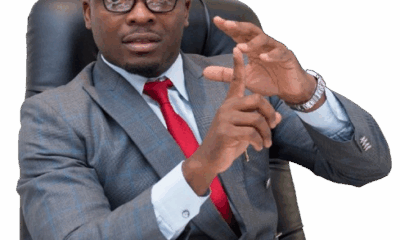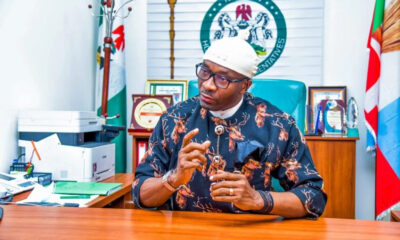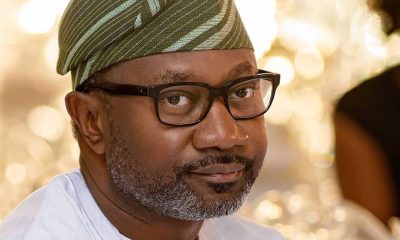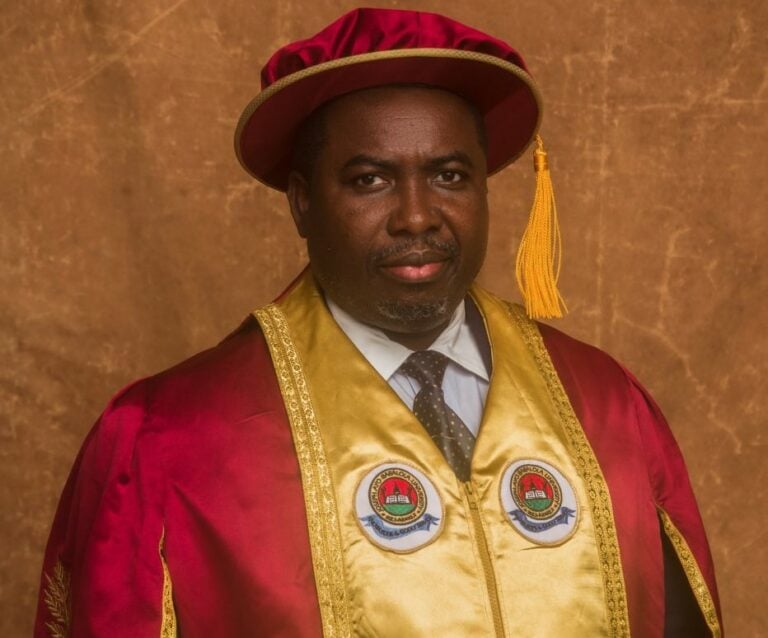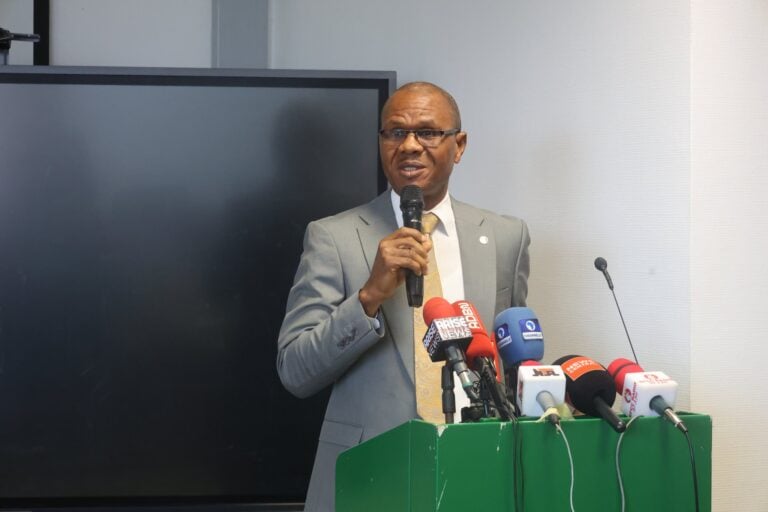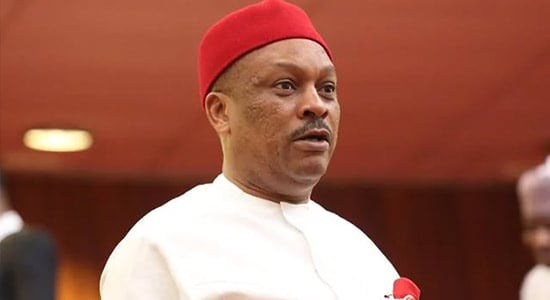President Bola Tinubu has charged the new Chairman of the Independent National Electoral Commission (INEC), Professor Joash Amupitan, to ensure that the 2027 general elections are free, fair, and devoid of violence, stressing that credible polls are the foundation of Nigeria’s democracy and public trust.
The President gave the charge on Thursday at the State House, Abuja, shortly after administering the oath of office on the new electoral chief, whose appointment was confirmed by the Senate a week ago.
Tinubu described Amupitan’s elevation as a vote of confidence from both the executive and legislative arms, urging him to guard the integrity of the electoral process with “the highest level of patriotism and discipline.”
“I, therefore, urge you, Professor Amupitan, as you take on this assignment, to protect the integrity of our elections and the institutional capacity of INEC,” Tinubu said.
“Your first test will be the November 2025 Anambra governorship election. I wish you success on that assignment.”
He noted that since 1999, Nigeria’s democracy had matured through reforms and lessons learned from previous challenges, but added that the electoral system must now go beyond rhetoric and stand as a model of credibility.
“Our democracy has come a long way,” Tinubu remarked. “To ensure that it continues to flourish, the integrity of our electoral system must be beyond reproach.”
He emphasized that every stage of the process — from voter registration to campaigns, media access, voting, counting, and collation — must reflect transparency, inclusivity, and peace, noting that the strength of democracy lies in the people’s ability to trust the process.
“Elections safeguard the people’s exclusive right to choose their leaders,” Tinubu said. “We must continue to improve the system, learn from yesterday, and innovate for tomorrow.”
Amupitan Promises Credible Polls, Calls His Appointment ‘Divine’
In his response, Professor Amupitan pledged to uphold the Constitution and pursue credible, free, and fair elections.
Speaking to State House correspondents after taking his oath, the Senior Advocate of Nigeria and Law Professor from the University of Jos said his leadership would be anchored on collaboration, transparency, and accountability.
“I reaffirm my commitment to defend the Constitution,” Amupitan declared. “Like the President said, I have been given a clear charge — to ensure credible, fair, and free elections. And that, I will ensure.”
He said the success of INEC’s work would depend on the cooperation of political parties, civil society, and security agencies, stressing that “no matter how well the system is designed, it needs stakeholders’ support to function.”
Amupitan took over from Professor Mahmood Yakubu, who served two consecutive terms — the longest in INEC’s history — and introduced key innovations such as BVAS and IReV to strengthen transparency.
‘We Must Restore Voter Confidence’
Upon assuming office at the commission’s headquarters, the new INEC boss vowed to restore public confidence, describing his appointment as “divine and purposeful.”
“The upcoming Anambra election is not just another poll,” Amupitan told INEC directors. “It’s a defining moment to prove our commitment to credible elections. Every voter must feel that their vote will count.”
He pledged to make staff welfare a priority, noting that the commission’s workforce plays a critical role in ensuring integrity in the electoral process.
“We expect so much from our staff, and that’s why their welfare will be central,” he said. “We’ll work tirelessly to ensure conducive conditions and adequate resources to deliver on our mandate.”
Amupitan, who hails from Kogi State — the first INEC chair from the North-Central — said his appointment came through divine orchestration.
“Maybe if I had a choice, I’d say I wouldn’t come here,” he admitted. “But from all indications, I see God moving in this country. My coming is divine. God is using this opportunity to birth a new Nigeria.”
Agbamuche-Mbu Hands Over, Praises Yakubu’s Legacy
Earlier, May Agbamuche-Mbu, the acting INEC chair, officially handed over to Amupitan. She hailed his appointment as “a call to national service of the highest order,” while reminding him that he was taking over at a crucial time with the Anambra poll approaching.
“You are stepping onto a firm and fertile ground laid by your predecessor,” she said. “Professor Yakubu’s tenure was marked by innovations that deepened transparency and voter confidence.”
She expressed confidence in Amupitan’s ability to lead, describing his appointment as “a herculean national service demanding sacrifice, patience, and wisdom.”
Amupitan’s inauguration drew attendance from his family, colleagues, and top government officials. His colleagues from the University of Jos were said to have temporarily shut down the campus in celebration of his appointment.
As the 2027 elections draw closer, all eyes will now be on Amupitan and his team — to prove that the era of credible, peaceful elections in Nigeria has truly begun.

 BIG STORY3 days ago
BIG STORY3 days ago
 BIG STORY3 days ago
BIG STORY3 days ago
 BIG STORY4 days ago
BIG STORY4 days ago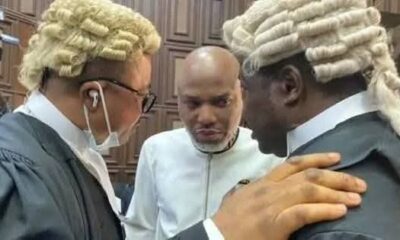
 BIG STORY2 days ago
BIG STORY2 days ago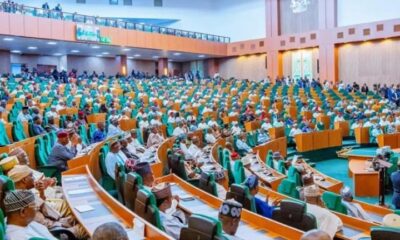
 BIG STORY17 hours ago
BIG STORY17 hours ago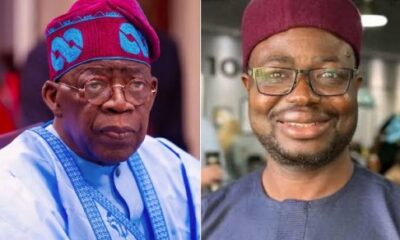
 BIG STORY3 days ago
BIG STORY3 days ago
 BIG STORY2 days ago
BIG STORY2 days ago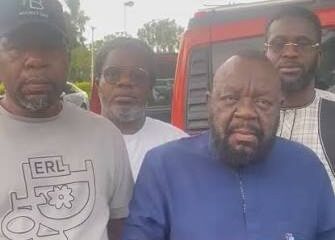
 BIG STORY3 days ago
BIG STORY3 days ago







